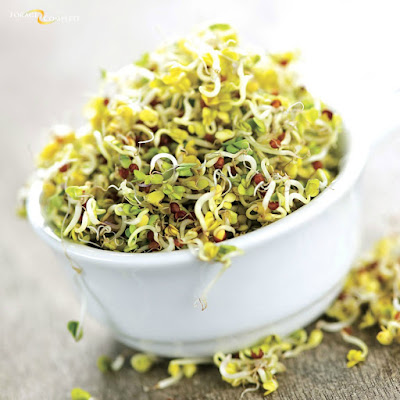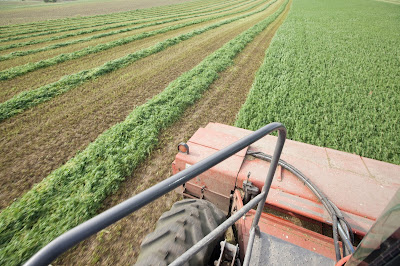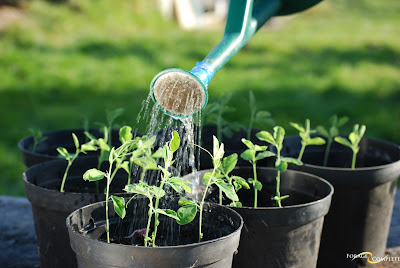How Alfalfa Benefits Organic Farming Methods
The dramatic increase in the use of artificial fertilizers and pesticides over the past few decades has caused significant deterioration in soil quality. Though it is an undeniable fact that chemical-based fertilizers increase crops’ yields, one of the downsides is that a portion of residual fertilizer makes its way into the water supply and causes contamination and eutrophication. Eutrophication has severely affected aquatic life in regions across the globe.
from this, use of synthetic fertilizers in place of ‘organic’ or ‘green’ manure-cover crops grown into the soil-can deplete nutritional value of the soil after a period of time.
The detrimental impact of artificial fertilizers, pesticides and genetically modified crops on the environment and public’s health has escalated the need for organic farming methods. For example, non gmo alfalfa seed is now planted by more and more organic farmers to suppress weeds, reduce surface crusting, add active organic matter to the soil and protect soil from rain. Alfalfa—also known as Queen of the Forage Crops—is among the most widely grown crops in the US along with wheat, soybeans and corn. While alfalfa seed is grown throughout the country, a bulk of its production comes from Idaho, California, Oregon, Wyoming and Washington.
Alfalfa provides many significant environmental benefits, including:
Helps Build Organic Matter
Alfalfa builds organic matter in the soil and provides nutrients to plant roots. The high nitrogen content in alfalfa helps organic matter to decompose. Organic matter is crucial for soil as it improves soil structure, holds moisture and also prevents erosion.
Stimulates Growth
Alfalfa contains a hormone called triacontanol which stimulates the growth of plants. This hormone is also responsible for enhancing photosynthesis and beneficial microbes that aid in suppressing numerous soil-borne diseases.
Controls Nematodes
Various studies have proven that alfalfa can significantly reduce infestations of harmful nematodes and, specifically, cyst nematodes in soil particles. Therefore, incorporating alfalfa into a standard crop rotation can lead to increased multi-year production levels.
Drought Resistant
One important characteristic of alfalfa is its ability to absorb and hold moisture, contributing to the growth of alfalfa plants even during periods of low rain. With this unique quality, alfalfa is one of the best crops to grow during prolonged drought conditions.
Stimulates Compost
Alfalfa acts as a great stimulator, creating more heat than other crops and accelerating the decomposition process for the bulk of the compost. Alfalfa also produces more nutrient-rich compost.
Forage Complete is proud to be one of the top suppliers of high-quality organic alfalfa, corn and other seed varieties in the country. It is also an exclusive retailer of organic seeds offered by NuTech seed throughout Utah, Oregon, Washington and Nevada. Forage Complete’s team of dedicated experts works tirelessly to deliver premium organic seed products, important research on organic farming techniques and critical support to farmers everywhere. All organic farmers—whether just beginning a transition from traditional farming methods or a veteran—can depend on Forage Complete to be a true partner in the journey toward improved processes and, ultimately, better and safer food products.
About Forage Complete:
Forage Complete is a leading supplier of organic seed products—from popular cash crops such as corn, alfalfa and timothy to specialized cover crops such as Bokito Radish, Smash Mustard and Rocket Lettuce.
For more information, please visit Foragecomplete.com




Comments
Post a Comment